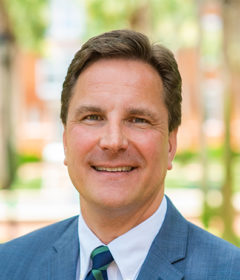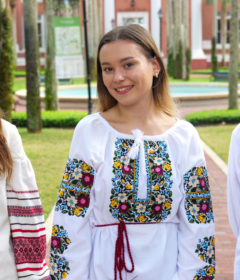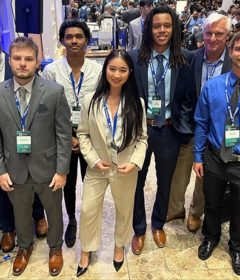Fresh perspective, from Cuba
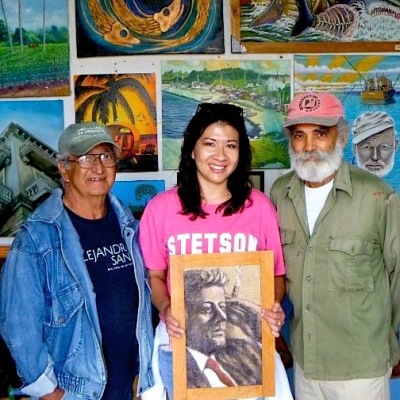
Students returning from international field studies invariably find they have acquired an invisible keepsake of great power – perspective.
Fresh perspective is something mentioned by nearly every student describing their Business School class trip to Communist Cuba in early March where they gained new and broader understanding of life on the island nation.
Those insights are denied most Americans because of many things, students say, including travel restrictions, propaganda, stereotypical thinking and indifference.
“It’s one thing to read about issues in the world, but to experience them first-hand allowed me to dissolve preconceptions of issues in Cuba,” said Jimmie Lopez, a junior Finance major from Boston. “Now that I’ve been there and have a real perspective, I question what I’ve been told and now shape my notions on facts and my experience.”
“The biggest insight I gained,” said junior Betty Gonzalez, “is the power of perspective and how easy it is for the same thing to be called different things by different people, and in this case, different countries.
“What we call a dictatorship, Cuba calls a democracy with a single socialist party,” said Gonzalez, an International Business major from Port Orange. “What we call nation-building, Cuba calls imperialism. What we call an economic embargo, Cuba calls an economic blockade.”
There is a real and obvious disconnect between the citizens and governments of the two countries because of Cold War bias, lack of open communications and flow of commerce and information, students said. The United States imposed an embargo on Cuba in 1960 and broke diplomatic relations in 1961.
The trip was preceded by several months of comprehensive study of Cuba in a class taught by Professor William Andrews, who accompanied students on the trip, his third to the island nation. In Cuba, the group met with pro- and anti-regime representatives. One purpose of the trip was to get students past the passionate political arguments and propaganda to allow development of their independent opinions.
“I’ve never seen a more polemicized society as Cuba,” said Andrews, who chairs the Management and International Business Department. “There is so much vitriol.” The highlight of the trip, and the entire course, was “the growth in the students’ capacity to think independently and factually about an important issue that has passionate advocates on both sides.”
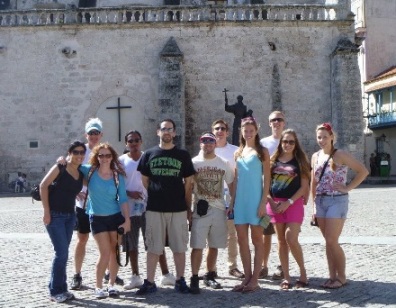
The disconnect of attitudes and understanding is changing, said Gonzalez, partly because new generations with less bias and because, despite difficult government relations, exchange of travel and information is increasing. Current government policies, said Lopez, are not only outdated, but harm innocent people.
“Cuba will become a very important trading partner for Florida in the not-too-distant future,” said Andrews, who hopes to continue field studies and expand established relationships “in an effort to support their movement toward a more market-oriented economy.”
By Ronald Williamson, writer, Lynn Letter

